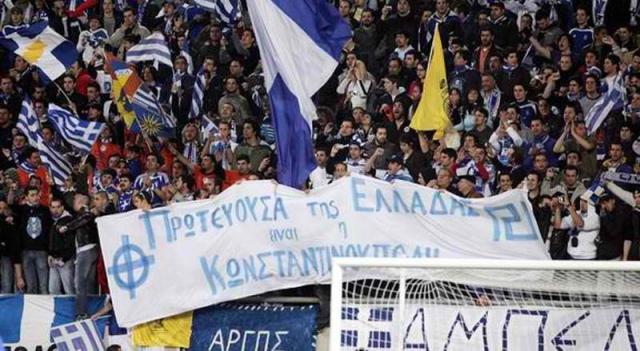Lora Doncheva
GRReporter exclusive
"The rise to power of Golden Dawn is impressive. It emerged as a formation in 1980 and was registered as a political party in 1993 after a long incubation period and insignificant electoral percentages (its first breakthrough was in 2010 (with 5.29%) with the election of its leader Nikos Michaloliakos a municipal councillor in Athens). It entered parliament after the parliamentary elections in May 2012 with 6.97% and 21 seats, the number of which declined to 18 after the elections in June  2012." This is the opinion of Professor Ricky van Boeschoten who is Dutch by birth, a professor of social anthropology at the University of Thessaly in Volos, Greece. She is director of the Laboratory of Social Anthropology of the University and President of the Hellenic Association for Oral History. The range of her research interests also includes social memory, migration, post-communist societies and ethnic communities. She has works related to the children of political emigrants during the Civil War in Greece and to the politics of memory. She conducted field research in Greece, Yugoslavia and Hungary. Professor Boeschoten was recently in Sofia and delivered at the "Xaspel" Social Centre a lecture on "Political extremism, xenophobia and crisis - the case of Golden Dawn in Greece." Professor Boeschoten, who is a social activist, arrived with several of her students from Greece whereas in the audience there were students from Bulgaria and other Balkan countries, university professors and journalists.
2012." This is the opinion of Professor Ricky van Boeschoten who is Dutch by birth, a professor of social anthropology at the University of Thessaly in Volos, Greece. She is director of the Laboratory of Social Anthropology of the University and President of the Hellenic Association for Oral History. The range of her research interests also includes social memory, migration, post-communist societies and ethnic communities. She has works related to the children of political emigrants during the Civil War in Greece and to the politics of memory. She conducted field research in Greece, Yugoslavia and Hungary. Professor Boeschoten was recently in Sofia and delivered at the "Xaspel" Social Centre a lecture on "Political extremism, xenophobia and crisis - the case of Golden Dawn in Greece." Professor Boeschoten, who is a social activist, arrived with several of her students from Greece whereas in the audience there were students from Bulgaria and other Balkan countries, university professors and journalists.
The lecture delivered by Ricky van Boeschoten focused on the threat on the part of the extreme right in Europe, the trends after the 1990s when mainstream anti-immigrant, xenophobic, racist and anti-Semitic political movements were on the rise almost throughout the entire continent. They have a variety of manifestations in different national contexts - the National Front of Marine Le Pen in France quite successfully seeks to soften its image, whereas in other countries such as Greece and the Ukraine such movements are responsible for the violence against political opponents and/or immigrants. The austerity policy across Europe is the reason for the intensified xenophobia and racism. In her lecture, Ricky van Boeschoten presented in the European context the development of the far-right Golden Dawn movement in Greece, advocating the view that the fight against xenophobia and racism must take place not in the individual countries as it should be treated as a problem of European dimension of the highest priority.

Professor van Boeschoten stressed that "despite the numerous acts of violence, namely 400 injured and 4 killed by Golden Dawn contingents, the Greek state mechanism initiated proceedings against the party leaders only in September 2013, after the murder of Greek hip-hop singer and activist Pavlos Fyssas. The state subsidy for the party was then suspended and its deputies were stripped of parliamentary immunity."
Golden Dawn claims it is not a Nazi but a nationalist party that respects democracy and the constitution, that it fights against the system and protects the Greeks from immigrants and corrupt politicians, attracting a large percentage of voters, especially with the last claim. The reality is however different. In 1978, the leader of the movement, Nikos Michaloliakos was sentenced to one year in prison for throwing a bomb in a theatre. The “achievements” of Golden Dawn include murders of leftist activists, attempted murders (280 attacks), violence against immigrants, indicating a criminal organization that should be pursued by the criminal court. "Until the tragic case of Pavlos Fyssas the party acted with impunity, the murder of a Greek citizen had to happen to provoke its prosecution by the Greek state," emphasized Prof. Boeschoten. "The movement is related to the state apparatus and
